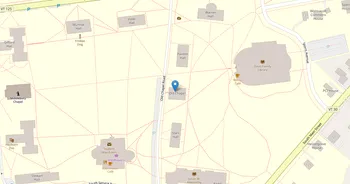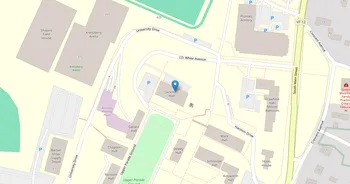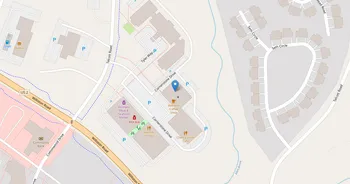Community College of Vermont (CCV) : Overview, Courses, Scholarships & Rankings
About Community College of Vermont
Vermont's community college with a statewide footprint, CCV in Montpelier blends flexible schedules with grounded academics. It's known for strong teaching in general education, career minded study, and smooth transfer prep. Students get approachable faculty, small classes, and support like advising, tutoring, writing help, tech access, and accommodations services.
The vibe is welcoming and no nonsense, with recent grads alongside working adults and career changers. Student life is practical but lively, with clubs, meetups, guest talks, and service. In the capital, civic projects, internships, arts, and part time work are close by, with trails and snow nearby. Career services stress job skills and local employer connections, and the statewide network lets students tap courses across Vermont while keeping that personal, neighborly feel.
Key Institutional Details
Contact & Profile
Academic & Institutional
Academic Programs & Fields of Study
Community College of Vermont (CCV) offers 31 degree programs across 13 major academic fields, graduating approximately 550 students annually. The most popular fields by graduate volume are Liberal Arts (1 programs, 114 graduates), Business (7 programs, 102 graduates), Education (3 programs, 95 graduates), Health (6 programs, 76 graduates) and Arts (4 programs, 51 graduates). Explore program details, award levels, and graduate demographics below.
Liberal Arts (1 programs, 114 graduates)
Liberal Arts Education, General Studies and Humanities
| Program Name | Graduates | Gender Distribution | Award Levels | CIP Code |
|---|---|---|---|---|
| Liberal Arts and Sciences | 114 |
|
Associate's
|
24.0101 |
Business (7 programs, 102 graduates)
Business Administration, Marketing and Entrepreneurship
| Program Name | Graduates | Gender Distribution | Award Levels | CIP Code |
|---|---|---|---|---|
| Business Administration | 57 |
|
Associate's
|
52.0101 |
| Accounting | 22 |
|
Associate's
|
52.0301 |
| Office Management and Supervision | 11 |
|
Associate's
|
52.0204 |
| Accounting and Bookkeeping Technology | 7 |
|
Other Award
|
52.0302 |
| Business Administration and Management | 2 |
|
Other Award
|
52.0201 |
| Entrepreneurship Studies | 2 |
|
Other Award
|
52.0701 |
| Organizational Leadership | 1 |
|
Other Award
|
52.0213 |
Education (3 programs, 95 graduates)
Educational Sciences, Teaching Methods and Pedagogy
| Program Name | Graduates | Gender Distribution | Award Levels | CIP Code |
|---|---|---|---|---|
| Early Childhood Education | 90 |
|
Associate's
|
13.1210 |
| Early Childhood Program Administration | 4 |
|
Other Award
|
13.0414 |
| Teacher Education and Professional Development | 1 |
|
Other Award
|
13.1299 |
Health (6 programs, 76 graduates)
Healthcare Professions, Medical Sciences and Clinical Practice
| Program Name | Graduates | Gender Distribution | Award Levels | CIP Code |
|---|---|---|---|---|
| Allied Health and Medical Assisting | 31 |
|
Certificate (1-2 yrs)
|
51.0899 |
| Health Information Technology | 21 |
|
Certificate (1-2 yrs)
|
51.0707 |
| Medical Assistant | 15 |
|
Other Award
|
51.0801 |
| Community Health Counseling | 4 |
|
Certificate (1-2 yrs)
|
51.1504 |
| Medical Office Assistant | 3 |
|
Certificate (1-2 yrs)
|
51.0710 |
| Pharmacy Technician | 2 |
|
Other Award
|
51.0805 |
Arts (4 programs, 51 graduates)
Fine Arts, Design Studies and Creative Performance
| Program Name | Graduates | Gender Distribution | Award Levels | CIP Code |
|---|---|---|---|---|
| Design and Visual Communications | 29 |
|
Associate's
|
50.0401 |
| Graphic Design | 13 |
|
Other Award
|
50.0409 |
| Digital Arts | 6 |
|
Certificate (1-2 yrs)
|
50.0102 |
| Studio Arts, General | 3 |
|
Other Award
|
50.0702 |
Computer & IT (3 programs, 36 graduates)
Computer Science, Information Technology and Cybersecurity
| Program Name | Graduates | Gender Distribution | Award Levels | CIP Code |
|---|---|---|---|---|
| Computer and Information Sciences | 25 |
|
Associate's
|
11.0101 |
| Computer Support Specialist | 8 |
|
Other Award
|
11.1006 |
| Information Systems Security and Auditing | 3 |
|
Certificate (1-2 yrs)
|
11.1003 |
Human Sciences (1 programs, 33 graduates)
Family Studies, Consumer Sciences and Human Development
| Program Name | Graduates | Gender Distribution | Award Levels | CIP Code |
|---|---|---|---|---|
| Child Care Provider and Assistant | 33 |
|
Other Award
|
19.0709 |
Science Tech (1 programs, 21 graduates)
Laboratory Sciences, Technical Research and Applied Analysis
| Program Name | Graduates | Gender Distribution | Award Levels | CIP Code |
|---|---|---|---|---|
| Science Technologies and Technicians | 21 |
|
Associate's
|
41.9999 |
Natural Resources (1 programs, 10 graduates)
Environmental Science and Natural Resource Management
| Program Name | Graduates | Gender Distribution | Award Levels | CIP Code |
|---|---|---|---|---|
| Environmental Studies | 10 |
|
Associate's
|
03.0103 |
Personal Services (1 programs, 6 graduates)
Hospitality Management, Culinary Arts and Personal Care
| Program Name | Graduates | Gender Distribution | Award Levels | CIP Code |
|---|---|---|---|---|
| Funeral Service | 6 |
|
Certificate (1-2 yrs)
|
12.0302 |
Tuition, Fees & Estimated Costs
Overview of tuition rates, housing, and other annual education expenses for undergraduate and graduate students
Financial Aid & Student Support
Summary of scholarships, grants, student loans, and financial aid statistics for undergraduate students
Student Success Metrics
Graduation rates and post-graduation earnings to help assess student outcomes and long-term value of education.
Loan Burden & Repayment Outcomes
Breakdown of loan repayment rates and student debt levels by income and dependency status.
Frequently Asked Questions
Find answers to the most common questions about Community College of Vermont (CCV)
How much does it cost to attend Community College of Vermont (CCV)?
The annual tuition at Community College of Vermont (CCV) is $6,920 for in-state students and $13,640 for out-of-state students. When including room and board, books, and other expenses, the total estimated cost is approximately $7,920 for in-state students and $14,640 for out-of-state students. Additional costs include room and board $13,324 (off-campus) and books and supplies $1,000.
Data based on IPEDS program completions for 2022-2023 academic year. Tuition and cost estimates are approximate and may not include all fees, personal expenses, or transportation costs.
What academic programs and degree levels does Community College of Vermont offer?
Community College of Vermont (CCV) offers 31 academic programs across 13 major fields of study, with available degree levels: Certificate (1-2 yrs), Associate's, Other Award.
Most popular program areas include:
- Liberal Arts Education, General Studies and Humanities (1 programs)
- Business Administration, Marketing and Entrepreneurship (7 programs)
- Educational Sciences, Teaching Methods and Pedagogy (3 programs)
- Healthcare Professions, Medical Sciences and Clinical Practice (6 programs)
- Fine Arts, Design Studies and Creative Performance (4 programs)
Data based on IPEDS program completions for 2023-2024 academic year. Numbers reflect programs where students graduated, not all offered programs.
What financial aid and scholarships are available at Community College of Vermont?
Community College of Vermont (CCV) provides financial aid to 3% of first-time, full-time students, with average grants of $6,355 and average loans of $5,410.
Average financial aid amounts by type:
- Pell grants: $4,528
- State/Local grants: $2,713
- Institutional grants: $2,463
- Federal loans: $4,767
The university supports 116 students with grants and 18 students with loans annually.
Data based on IPEDS for 2022-2023 academic year. Financial aid amounts and percentages may vary by program, enrollment status, and individual circumstances.
What is the average salary for Community College of Vermont graduates?
Community College of Vermont (CCV) graduates earn a median salary of $37,362 after 6 years and $36,234 after 10 years.
The salary range 10 years after graduation spans from $17,441 (25th percentile) to $56,454 (75th percentile).
Data based on IPEDS for 2022-2023 academic year. Salary data reflects graduates who received federal financial aid (approximately 60% of all graduates). Actual earnings may vary significantly based on program, location, and individual circumstances.
Related Universities




Found something useful? Help others discover it too! Share with friends, on social media, or save for later - every share helps someone find the information they need.